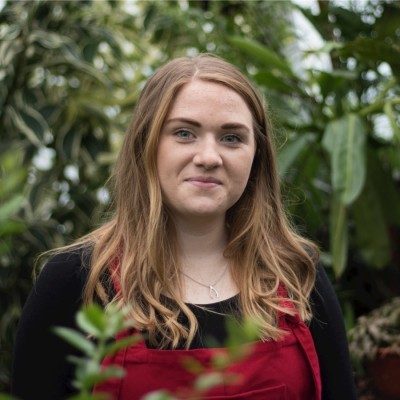I have taken holidays 10 miles from home and 10,000 miles away. As a farmer’s daughter and granddaughter, ethical, respectful use of land is part of who I am. It is also an essential component of how I live out my faith, and it doesn’t stop when I am on holiday.
I remember the frequent little lessons my dad in particular used to give whilst going about his daily farm chores: always close gates properly, leave things as you found them, don’t walk across land without first seeking permission. He repeated these things not to contain my natural curiosity as a child but simply to keep me safe from herds of young, unpredictable cattle, and to preserve land that was either growing a crop for food or being used for another life sustaining purpose.
The Bible teaches about this too. Genesis 2:15 describes humanity’s fundamental role in mindfully managing our natural surroundings: “God took the man and put him in the garden of Eden to work it and keep it.”
The simplest actions can make a difference
As a child, my holidays were in fact at my cousins’ dairy farm, eight miles from my parents’ home. There I would try to milk their goats whilst my aunty and cousins chuckled at my efforts. Later, I would run for my life, or so it seemed to me, scared stiff of their geese enroute to the swing field. Geese are noisy, big and can move very, very fast. Trust me. You may spot the theme: fun comes at a price!
Numbers 35:33 says, “You shall not pollute the land in which you live.” Simply taking time to enquire about the recycling and waste process, wherever you may be, can go an incredibly long way in helping preserve resources, finances and the landscape itself.
Taking steps towards the world we want to see
In Exodus 23:10 – 11, God commands His people: “For six years you are to sow your fields and harvest the crops, but during the seventh year let the land lie unploughed and unused.” Here we learn that our land, just like us, needs rest. Exploiting our natural world and preventing periods of recuperation can clearly be seen all around us in the threats to and loss of ecologically sustaining habitats.
Just as we go through seasons and periods of difficulty within our own work life, family situations and other personal circumstance, so do the fruits, crops and provisions that our world provides us. Consider pausing to think about what is in season, how something was produced or farmed, where all the elements came from to cultivate or construct it, is there another option that is available to us that represents the more compassionate, ethical world, the world we all hold in our hearts? This individual enquiry process is key to going forward in positive action to make our tourism industry a thriving entity, bursting with collaborative community and regenerative initiatives.
"...is there another option that is available to us that represents the more compassionate, ethical world, the world we all hold in our hearts?"
For our wedding, my husband and I decided to venture to the Cook Islands as we have some friends and family in that part of the world – plus we absolutely love travelling to new (and hot) destinations. The ceremony we chose was simple and very local. We hired an islander to take our wedding photos. To commemorate our union, we planted a native tree, an initiative that the island ranger told us was part of building resilience back into the island following a tsunami over ten years prior.
Since 2023, thanks to the United Nations, we have an international Global Tourism Resilience Day (17 February). This can help us all to recognise just how big the world is and how much there is to see. It also perhaps demonstrates where we are in this increasingly fast-paced, interconnected world. And yet there seems to be a widening gap in genuine community. Globalisation in both travel and trade, is an incredibly powerful model which has enabled us to experience more, learn more and educate ourselves about the diverse spectrum of natural beauty that makes up the world we live in. God has created such a mesmerising place for us, so it is incumbent on all of us to remember our collective and personal responsibilities in regard to nurturing and protecting it.
Leviticus 19:9 closely connects care for our neighbour with care for our lands: “When you reap the harvest of your land, do not reap to the very edges of your field”. The tourism industry is quite literally bread and butter for countless nations all over the world. Making mindful effort to replenish our planet while continuing to explore and enjoy it is an inherent duty for all of us.
However near or far you venture, I pray that this stirs your soul today to make the better choice, the kinder choice, the choice that enables and loves your neighbour, and indeed the choice that fulfils your purpose as a neighbour.

COP29: Is climate change a Christian issue?
Laura Young helps us piece together the significance of COP29 and urges Christians to pray and advocate for change





